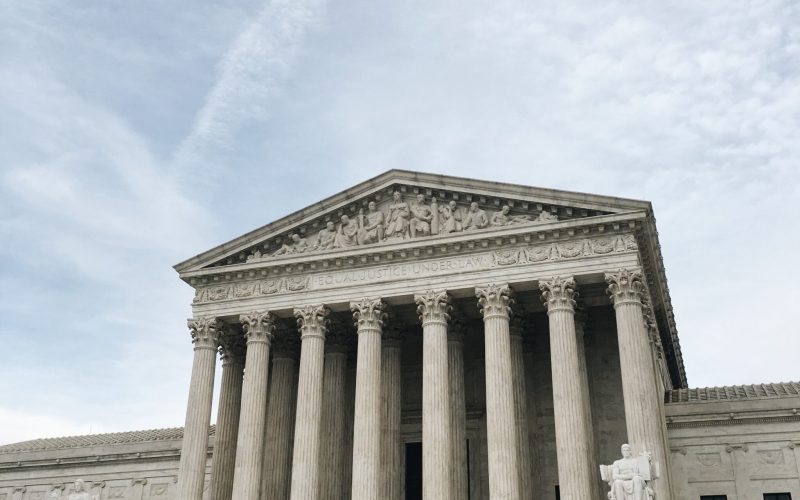Often, in the wake of gun violence, politicians and commentators say that stricter background checks should become enacted to restrict dangerous individuals from owning the weapons used to perpetrate these crimes. States across the country have enacted various laws intended on restricting firearms access. Recently, the Supreme Court accepted an appeal from the Fifth Circuit to rule on the constitutionality of such restrictions, specifically how domestic violence charges/orders should impact an individual’s ability to purchase firearms.
Last year, in NYSPA v. Bruen, the Supreme Court established a new standard for assessing gun restrictions which relies heavily on historical precedent, undoing New York legislation that required one show proper cause before being permitted to concealed carry and reasserting the Second Amendment right to carry a pistol in public. This latest case, US v. Rahimi, is much more progressive in its application of gun ownership restrictions [1]. In this case, the Court will decide whether a federal exception should supersede the more strictly developed state standards, which currently prohibits individuals with domestic violence restraining orders from possessing firearms. As the case addresses the Second Amendment, there has been a lot of involvement from the gun lobbying community, resulting in seven amicus briefs case thus far, from DV and gun violence prevention advocates to state leaders outside of Texas who are concerned about the case’s impact on their governance [2].
In Rahimi, a Texas man was discovered with firearms and ammunition in his home while his girlfriend had an active restraining order against him. Rahimi was charged with unlawful possession but argued that Title 18-922(g)(8) (the federal exception in question that prohibited his ability to possess firearms) was a violation of his Second Amendment right. The Fifth Circuit overruled the state court’s decision to uphold Rahimi’s charges, arguing that he was still part of the “political community” of Americans entitled to Second Amendment protection, despite the restraining order. The likely reasoning behind this ruling was that establishing an active protective order against a defendant would create too low of a bar for firearm confiscation, which is typically subjected to an extremely strict level of scrutiny.
With the holding of Bruen still in place, Rahimi will be examined through the historical framework previously established, with a reliance on strict Constitutional text interpretation. However, even the most in-depth analysis is not likely to find a history of substantive law regarding domestic violence and limitations on gun ownership, as domestic violence was not considered a crime until the early 20th century Therefore, even with a historical basis for the analysis of modern gun ownership laws, the Court will have to expand its criteria for assessment as this specific issue is a relatively new one.
There will always be loopholes in existing laws that allow perpetrators of domestic violence and others facing similar allegations to purchase weapons. It is a perpetual issue that is often not considered until after a crime occurs [3]. However, if the Court were to issue a ruling upholding Texas’ domestic violence exception on a federal basis, there would likely be a positive impact on similar legislation currently being considered in state legislatures [4]. Domestic violence advocates continue to hope that, even if the Supreme Court does not reverse the Fifth Circuit decision, a ruling would allow for greater clarification of Bruen and still provide a way to restrict firearm access for perpetrators of domestic violence.
[2] United States v. Rahimi – SCOTUSblog
[3] Supreme Court gun case: US v. Rahimi will decide if abusive spouses have a right to own guns – Vox
[4] Advocates Fear SCOTUS Ruling on ‘Angry Abusers With Guns’ (msn.com)
Supplemental Reading: Supreme Court Agrees To Hear Controversial Gun Case That Could Allow Abusers To Possess Guns (yahoo.com)
Mallory Scott is a 2L at the Sandra Day O’Connor College of Law at Arizona State University, and law clerk at Woodnick Law PLLC. While working as a clerk during the summer, she has had the opportunity to work on real-world litigation, but also research topics of interest relating to the future practice of law. The practice values exploration into collateral topics that relate to families, especially their relevance to popular culture and media.



